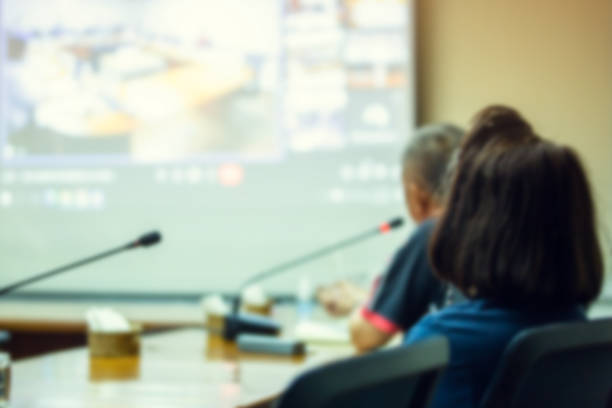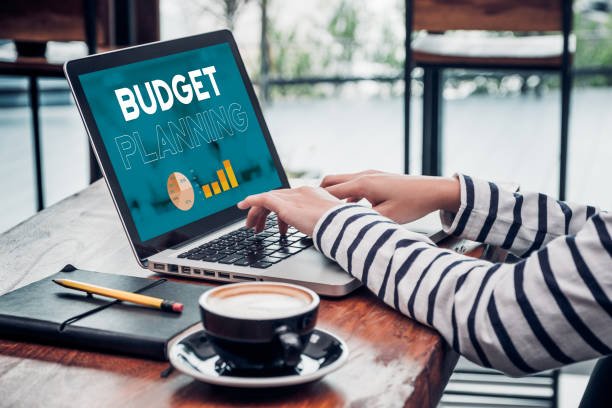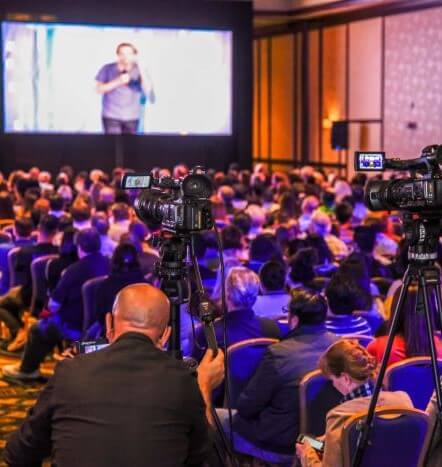
Are you ready to boost your event turnout? Whether your event is in-person, virtual, or hybrid, effective marketing is key. While ticket sales often spike at the start and close of the promotion period, maintaining consistent sales throughout is crucial. A well-defined marketing strategy is essential for reaching your attendance goals.
Gone are the days of relying on sporadic ticket sales. A strategic marketing plan is vital, serving as a roadmap for the entire event planning process. It should be a cohesive strategy rather than a last-minute collection of ideas. Typically, event promotions should kick off at least six months in advance to effectively engage your target audience. This phase involves diverse marketing methods and measurable metrics to assess progress and demonstrate ROI.
In this blog, we'll walk you through effective event marketing strategies, offering proven tactics and insights on leveraging event technology to enhance your efforts. By the end, you'll have the tools and knowledge needed to successfully market your event and fill those seats.
Starting Your Promotional Journey
Event marketing isn’t a one-size-fits-all approach. Each event has unique characteristics that require tailored strategies. At this stage, you should have a budget, venue, and speakers lined up. Now it’s time to craft a marketing plan that connects with your audience using the right messaging.
Your strategy may become more complex if your event is part of a broader marketing initiative. Focus on creating a promotional plan for your specific event to attract attention, build brand awareness, and drive registrations.
Identifying Your Target Audience
Successful event planning starts with understanding your target audience. Define the personas of the attendees you wish to attract and tailor your messaging accordingly. For example, a business owner will prioritize different benefits compared to an employee. Compile information about each audience segment, considering factors such as:
Channels: Which social media platforms do they frequent?
Content Consumption: What types of content do they prefer (blogs, emails, social posts)?
Messaging: How does your event address their needs and help them achieve their goals?
Proven Event Marketing Tactics
Your event marketing strategy determines which tactics to employ and how they interconnect. Here’s a list of effective promotional tactics that can be combined to create a successful campaign:
Social Media Marketing
Social media is a powerhouse for event marketing. It creates a sense of community among attendees and plays a critical role in the buyer's journey.
Consider these steps for a robust social media marketing plan:
Content Timeline: Start with engaging, topical content well in advance, gradually increasing urgency.
Event Teasers: Share highlights, speaker profiles, and past event successes.
Influencer Marketing: Collaborate with speakers to tap into their networks.
Event Hashtag: Develop a unique hashtag to enhance discoverability.
Giveaways: Run contests to build excitement and grow your email list.
Paid Social Ads: Complement organic efforts with targeted ads.
Content Marketing
Utilize your existing content channels to provide valuable, relevant content leading up to the event. Include clear calls to action linking to your registration page.
Pre-registration Campaigns
Generate buzz by creating a teaser page before official registration opens. Consider offering early-bird tickets for a limited time to encourage early sign-ups.
Personalized Messaging
Tailor your communications based on your audience personas, past attendance, and engagement history to make your messages more relevant.
Registration Pages
Use your registration page as a chance to collect data about attendees, enabling you to personalize follow-up messaging and improve attendance.
Multichannel Marketing
Recognize that potential attendees will likely need multiple touchpoints before registering. Use a combination of social media, blog posts, email marketing, and paid ads to maximize your reach.
Leveraging Data for Registration Boosts
Monitor data from your event website to refine your marketing efforts. Analyze which content generates the most interest and use those insights to optimize future promotions.
Involving Speakers and Attendees
Encourage speakers to promote the event through their channels and provide them with promotional materials. Engage attendees early by offering incentives for sharing information about the event within their networks.
Sponsorship Promotions
Collaborate with sponsors to extend your reach. Encourage them to promote the event through their channels, enhancing visibility for both parties.
Quick Win Tactics
Don't overlook simple tactics that can yield significant results, such as:
Adding event details to newsletters.
Including event links in email signatures.
Submitting event information to local media.
Encouraging attendees to share the event post-registration.
Streamlining Event Planning with Technology
Successful event marketing in 2024 requires organization and analytics. Utilizing an integrated event management platform can simplify your marketing efforts and improve user experience.

.jpg)











.jpg)






























.jpg)





_11zon.jpg)

